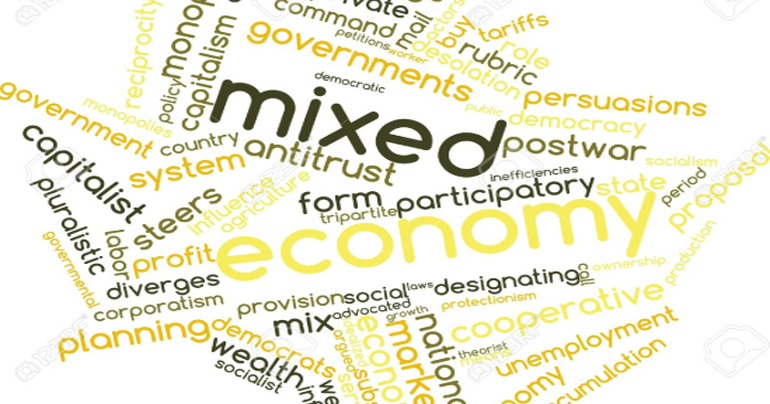
Entrepreneurs in a mixed economy
11 Sep 2015Entrepreneurs occupy a very central and important position in any market. They are the game changers and tend to rock the boat more often to bring sweeping changes in the way we do businesses. They adopt and adapt to new technologies and tend to be the first to push for a change in the way business is conducted. In a world where every country wants to have a more diversified economy to protect itself from economic crisis, the entrepreneur becomes the most sought after person. So how do these people adapt to a mixed economy?
Mixed economies offer more freedom and allow free participation in the buying and selling process and this is the right kind of environment for entrepreneurs to thrive in. The social infrastructure holds a place of importance in the government budgets and all essential services are established and available to all. Although mixed economies might seem more liberal in operation, they also follow a set of regulations when ensures that all businesses are benefitted. Regulations that ensure environmental protection, intellectual property rights and wage laws are essential.
While the market may allow a free hand in conducting business, entrepreneurs are also controlled and protected by beneficial laws that aim to prolong the life of a business. Mixed economies are more open to change and can easily adapt. Rigid and command economies do not have this appeal. This is not to say that entrepreneurship doesn’t exist in such economies. If it does it is an uphill battle to create and run a business.
A few things that entrepreneurs should be aware about when dealing with a mixed economy includes
1. Protectionism policies – These may be in the form of tariffs and barriers to trade. These can hamper the entrepreneurs in the growth stage of business and they should be well-aware before embarking on their journey in such an economy
2. Monopoly –It is important to understand how and why a monopoly thrives in a particular sector and what steps can be taken to tackle it. Entrepreneurs’ should be aware of the setbacks that might arise on confronting with a monopoly in their field of expertise
3. Anti-trust laws – These are important to understand and abide by else one might find themselves in a legal battle too early in their business career
4. Taxation policies – Learning and using the tax system to your benefit is a must. In mixed economies certain tax policies might seen against free market trading but there will be an equal number of tax laws that can come to your rescue.
5. Government subsidies – These are beneficial to the entrepreneur’s bottom line and one should be updated and aware of how these policies can be used to their advantage.
Business ideas can flourish in mixed economies if we find the right set of entrepreneurs.
What people say

A business leader with a clear objective to Build a Legacy through his business acumen and passion to excel, being associated with Dr Tejinder opens up new avenues for learning.

Dr Tejinder Singh , the man who taught me to teach and lead. My first and only professional Guru who would run the mile first and push me to walk that . A wonderful human being and an exceptional professional.

Tejinder is one of the most amazing client/business partner that I have ever met.

I met Bhattia sahib once and found him very friendly,intelligent and very focused head of an efficient organisation.

In my association with Tejinder I have found him to be very frank in his views.He is very strong in his domain knowledge and also has sharp commercial acumen.

I was hired by Tejinder Sir, in the year 2003, which was also the turning point in my career.

My 1st Impression about Mr. Tejinder Singh Bhatia - An Exteremely Confident Professional, Who knows What he is Doing and Where he wants to Reach.

He was a dedicated and sincere person and always followed pragmatic approach while fulfilling his job responsilbilites.

I am priviledge to work under him, he is an excellent Leader where team always ready to work for him even at oddest hour of the day.